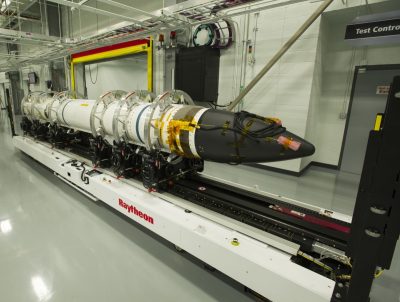Will American Missiles Destroy the Russian-Japanese Rapprochement?

The US-Japanese missile deal is threatening to ruin the Russian-Japanese rapprochement.
The island nation will be purchasing four SM-3 Block IIA anti-missile systems from the US for over $130 million in order to ostensibly defend against North Korea, though Russian Foreign Minister Lavrov openly suspected that the Americans might end up manning these units and potentially exploiting them as a front for deploying offensive weaponry for use against his country. Basically, Russia is implying that the US is expanding its contentious “missile defense shield” from Eastern Europe to Northeast Asia in tightening its strategic noose around Eurasia. Japan denies these accusations and asks Russia to trust it, but the developing disagreement between the two is now threatening to derail their newfound and promising relationship.
Neither side will probably be able to reach a long-awaited World War II peace treaty with one another because their publics will accuse one or the other government of “selling out” depending on the resolution of what Japan calls the “Kuril Islands Issue”, with Moscow being berated for succumbing to “strong arm” tactics if makes any territorial concessions afterwards or Tokyo getting attacked for using the missile deal as a “face-saving” excuse for withdrawing its claims. Nevertheless, Japan will most likely go forward with the missile purchase due to domestic political pressure on Abe to prove that he’s “doing enough” to protect his people from North Korea, exactly as the US foresaw would happen.
This means that the ball will be in Russia’s court over whether it decides to continue with the rapprochement or not despite the ever-diminishing odds that the “Kuril Islands Issue” will be resolved in the near future, and while there are convincing arguments for why Moscow might suspend this process, there are also three interrelated and pragmatic reasons for why both sides could surmount what Washington clearly intends to be the ultimate stumbling block to their rapprochement so far.
Japan has an interest in investing in the nearby Kuril Islands and Russian Far East, just as Russia is eager to see as much foreign capital coming into these far-flung corners of the country as possible. Tokyo is attracted to the idea of establishing a strategic presence along China’s borders there too, just as Moscow wants to diversify its “Pivot to Asia” from its erstwhile sole Northeast and East Asian strategic dependency on China. Finally, Japan desires to use Russia’s mainland and maritime territory for achieving access to Western Europe, which aligns with Russia’s grand strategy in serving as Eurasia’s Silk Road bridge and geopolitical “balancer”.
Altogether, Russia and Japan have a lot to lose if they fall for the US’ trap by allowing its manipulation of the manufactured North Korean missile threat to undermine their rapprochement and provoke one or the other to suspend this process for reasons of “image” and “national prestige”, since the last thing that Washington truly wants is for Moscow and Tokyo to continue working together in spite of this.
The post presented is the partial transcript of the CONTEXT COUNTDOWN radio program on Sputnik News, aired on Friday Jan 19, 2018:
*
Andrew Korybko is an American Moscow-based political analyst specializing in the relationship between the US strategy in Afro-Eurasia, China’s One Belt One Road global vision of New Silk Road connectivity, and Hybrid Warfare.
Featured image is from the author.

